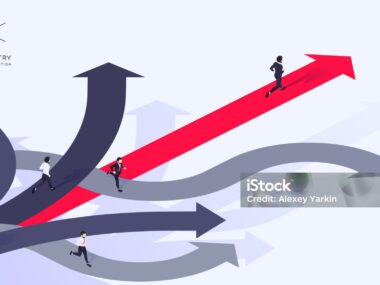Living with Chronic Fatigue Syndrome (CFS) can be an overwhelming challenge, impacting every aspect of one’s life, including career prospects and personal fulfillment. However, amidst the struggles, there’s hope in skill acquisition programs tailored to empower individuals battling CFS in the UK. These initiatives provide not just training but also a supportive environment for those seeking to reclaim their lives and pursue their aspirations. In this article, we delve into the significance, effectiveness, and optimization of skill acquisition programs for individuals with CFS in the UK.
Understanding Chronic Fatigue Syndrome:
Chronic Fatigue Syndrome, also known as Myalgic Encephalomyelitis (ME/CFS), is a complex condition characterized by persistent fatigue that doesn’t improve with rest and may worsen with physical or mental exertion. It often coexists with symptoms such as cognitive impairments, sleep disturbances, and pain. Managing CFS requires a comprehensive approach involving lifestyle adjustments, medical support, and psychosocial interventions.
Challenges Faced by Individuals with CFS:
People with CFS encounter numerous challenges, including limited access to employment opportunities, social isolation, and feelings of frustration due to their condition’s unpredictable nature. The traditional work environment may not accommodate their fluctuating energy levels and symptom severity, leading to employment instability and financial strain. Moreover, the societal stigma surrounding invisible illnesses like CFS adds an extra layer of difficulty for affected individuals.
The Role of Skill Acquisition Programs:
Skill acquisition programs tailored for individuals with CFS serve as a beacon of hope, offering a pathway to personal and professional development despite the limitations posed by the condition. These programs aim to equip participants with valuable skills, boost their confidence, and facilitate their integration into the workforce or community activities. More importantly, they provide a supportive network where individuals can connect with peers facing similar challenges, fostering a sense of belonging and understanding.
Key Components of Effective Skill Acquisition Programs:
- Tailored Curriculum: Skill acquisition programs for individuals with CFS should feature a flexible curriculum that accommodates varying energy levels and cognitive abilities. Modules can include remote learning options, self-paced activities, and accommodations for rest breaks during sessions.
- Holistic Support: Beyond skill training, these programs should offer holistic support, addressing the psychosocial and emotional needs of participants. Counseling services, peer support groups, and mindfulness-based practices can enhance overall well-being and resilience.
- Vocational Guidance: Providing vocational guidance and career counseling is crucial for individuals with CFS navigating their employment options. Career assessments, job placement assistance, and advice on workplace accommodations can empower participants to make informed decisions about their professional paths.
- Accessibility Measures: Ensuring accessibility is paramount in optimizing skill acquisition programs for individuals with CFS. This includes offering remote or online options, providing transportation assistance, and implementing physical accommodations for those with mobility challenges.
Case Studies: Success Stories from Skill Acquisition Programs:
- Sarah, diagnosed with CFS at a young age, struggled to find employment due to her unpredictable symptoms. Through a skill acquisition program focusing on remote freelancing opportunities, she discovered her passion for writing and graphic design. Today, Sarah enjoys a thriving career as a freelance artist, thanks to the supportive environment provided by the program.
- James, a former corporate executive forced into early retirement due to his worsening CFS symptoms, found solace in a skill acquisition program offering virtual coaching and mentorship. Despite his initial apprehensions, James embraced entrepreneurship and now runs a successful online consulting business, leveraging his expertise in project management.
Optimizing Skill Acquisition Programs for Long-Term Impact:
To ensure the long-term success and sustainability of skill acquisition programs for individuals with CFS, several optimization strategies can be implemented:
- Continuous Evaluation: Regular assessment of program effectiveness and participant feedback is essential for identifying areas of improvement and refining programmatic elements.
- Collaboration with Healthcare Providers: Establishing partnerships with healthcare providers specializing in CFS can enhance the holistic support offered by skill acquisition programs, ensuring alignment with participants’ medical needs.
- Advocacy and Awareness: Raising awareness about the unique challenges faced by individuals with CFS and advocating for greater inclusivity in education and employment settings can create a more supportive environment for program participants.
- Community Engagement: Fostering community engagement through alumni networks, social events, and online forums cultivates a sense of belonging and ongoing support beyond the duration of the program.
Conclusion:
Skill acquisition programs tailored for individuals with Chronic Fatigue Syndrome play a pivotal role in empowering lives, fostering independence, and promoting inclusivity in the UK. By addressing the multifaceted needs of participants and offering a supportive environment conducive to growth and development, these initiatives pave the way for a brighter future despite the challenges posed by CFS. Through continuous optimization and collaborative efforts, we can ensure that individuals with CFS have access to the resources and opportunities they need to thrive and contribute meaningfully to society.






